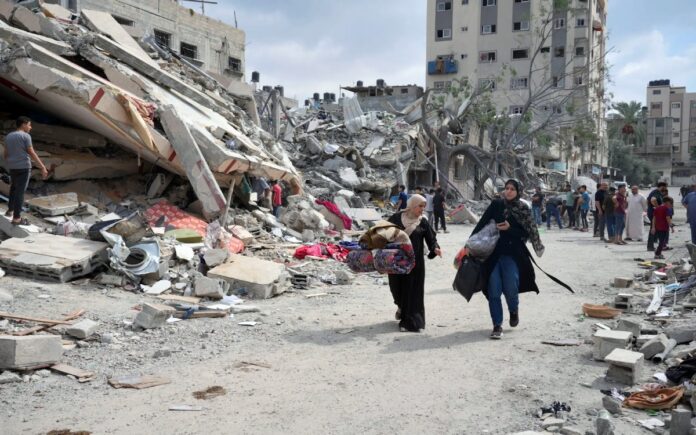Cairo/Geneva: Unemployment in the Gaza Strip has soared to nearly 80% following the eruption of conflict with Israel last October, according to the United Nations labor agency, pushing the average unemployment rate across Palestinian territories to over 50%.
The International Labour Organization (ILO) revealed in its fourth assessment of the war’s impact on employment that unemployment in the Gaza Strip has climbed to 79.1%, while the West Bank has witnessed joblessness rise to almost 32%, resulting in a combined unemployment rate of 50.8%.
Ruba Jaradat, ILO Regional Director for Arab States, emphasized, “This excludes Palestinians who have given up on finding a job. The situation is much worse.”
Israel’s ground and air campaign in Gaza was launched in response to Hamas’ incursion into southern Israel on Oct. 7, resulting in approximately 1,200 casualties and the seizure of 253 individuals as hostages, according to Israeli reports.
Also Read | Niger’s Repeal of Migrant Law: Impact on Migration Routes and European Concerns
Health authorities in the Gaza Strip have reported that the Israeli offensive has claimed over 36,500 lives. Even prior to the conflict, approximately half of the 2.3 million inhabitants of Gaza lived below the poverty line.
Jaradat underscored the dire consequences of the high unemployment rate, stating, “Imagine with this very high level of unemployment, people will not be able to secure food for themselves and for their families. This is also impacting their health…. Even if they have money, there are no hospitals that can accommodate the catastrophic situation there.”
Also Read | Vatican Arrests Former Employee for Attempted Sale of Missing Bernini Manuscript
Economically, the real gross domestic product (GDP) has plummeted by nearly 33% in the Palestinian territories since the commencement of the war. The Gaza Strip has borne the brunt of this decline, experiencing an estimated contraction of 83.5%, while the West Bank’s GDP has decreased by 22.7%, according to ILO data.
“In the occupied Palestinian territory and particularly in the West Bank, the reduction in incomes has pushed many families into severe poverty,” Jaradat lamented.



